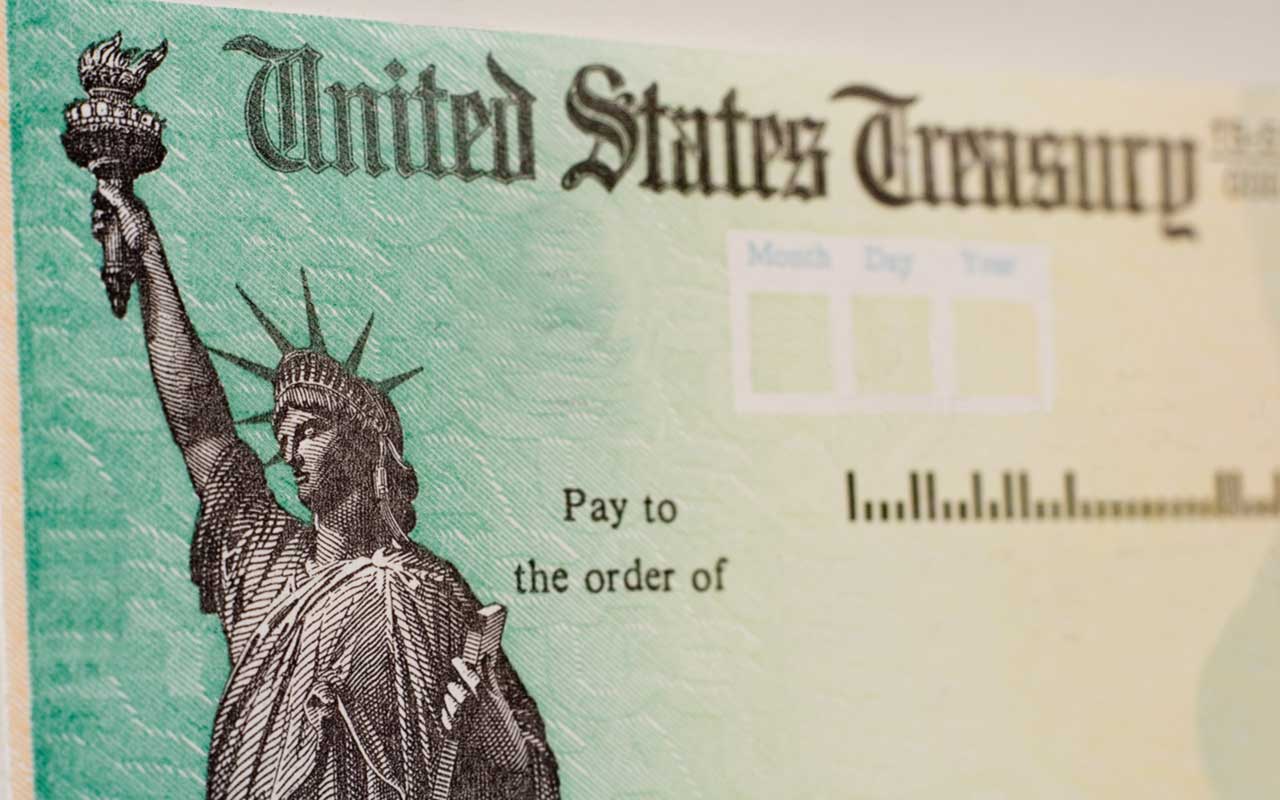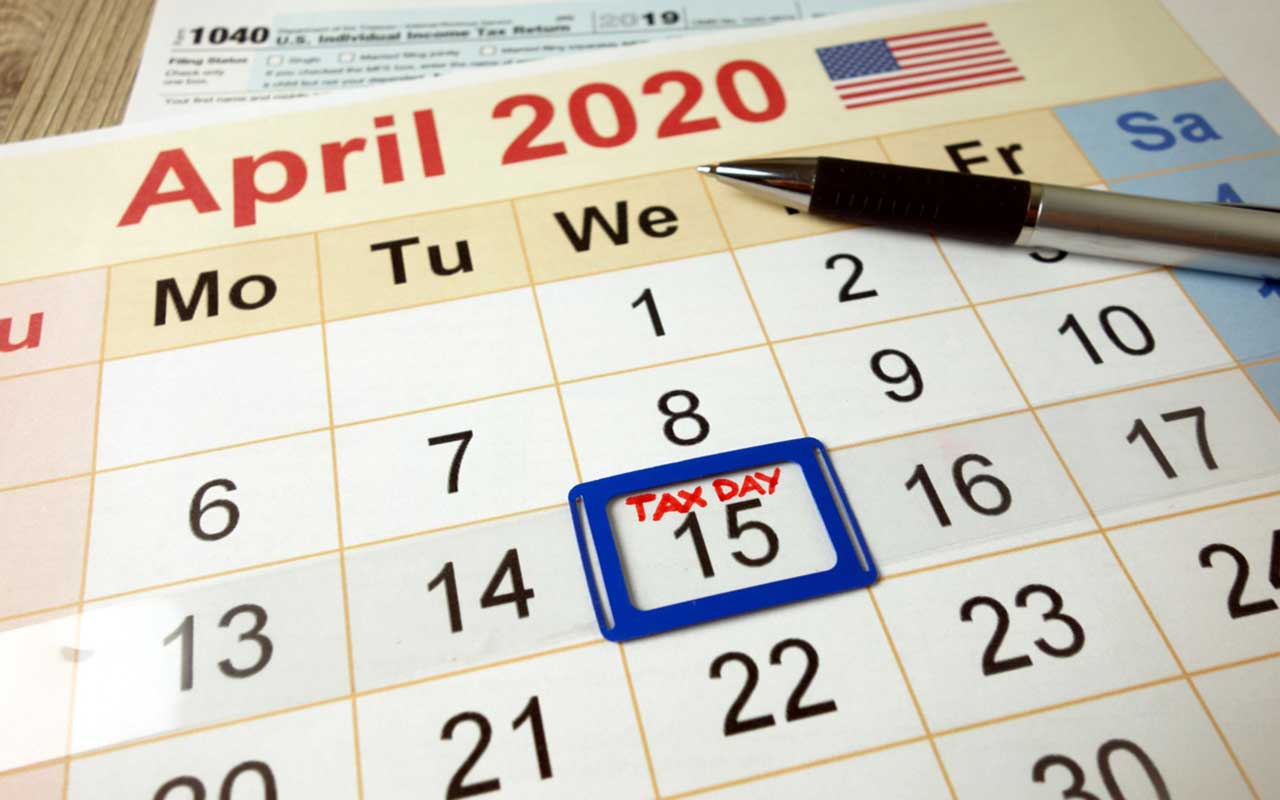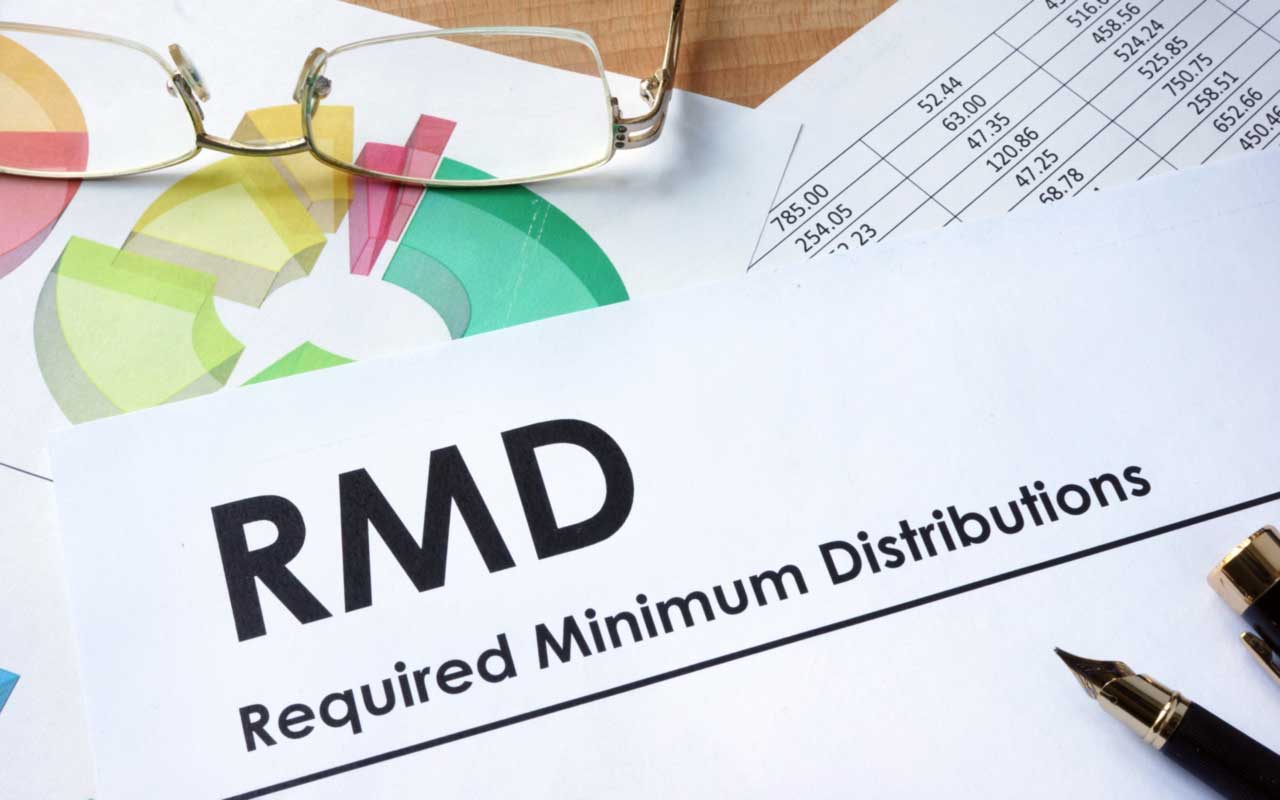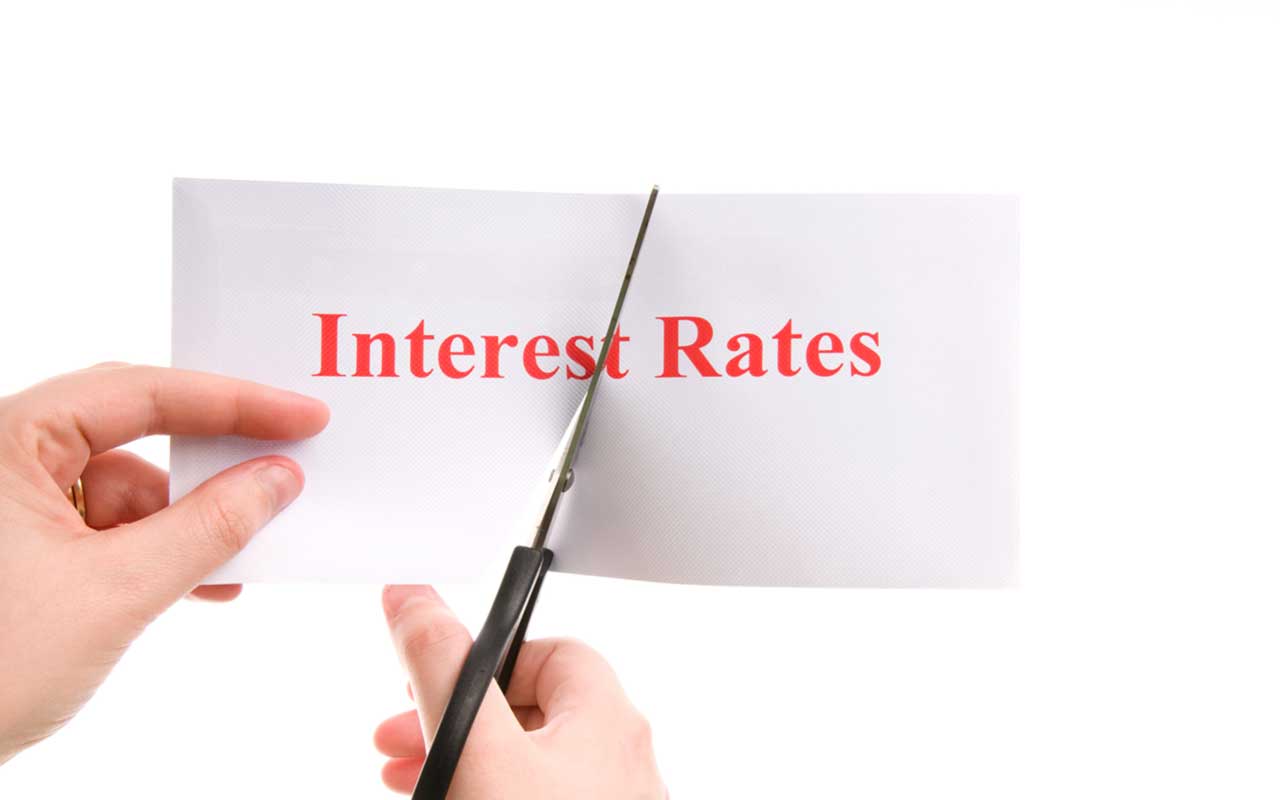11 Ways the CARES Act and Other Government Measures Could Help You in 2020
Hopefully, the CARES Act and other coronavirus stimulus measures will get the U.S. economy back on track. Some of the changes made could improve your own financial health in 2020, too.


Profit and prosper with the best of Kiplinger's advice on investing, taxes, retirement, personal finance and much more. Delivered daily. Enter your email in the box and click Sign Me Up.
You are now subscribed
Your newsletter sign-up was successful
Want to add more newsletters?

Delivered daily
Kiplinger Today
Profit and prosper with the best of Kiplinger's advice on investing, taxes, retirement, personal finance and much more delivered daily. Smart money moves start here.

Sent five days a week
Kiplinger A Step Ahead
Get practical help to make better financial decisions in your everyday life, from spending to savings on top deals.

Delivered daily
Kiplinger Closing Bell
Get today's biggest financial and investing headlines delivered to your inbox every day the U.S. stock market is open.

Sent twice a week
Kiplinger Adviser Intel
Financial pros across the country share best practices and fresh tactics to preserve and grow your wealth.

Delivered weekly
Kiplinger Tax Tips
Trim your federal and state tax bills with practical tax-planning and tax-cutting strategies.

Sent twice a week
Kiplinger Retirement Tips
Your twice-a-week guide to planning and enjoying a financially secure and richly rewarding retirement

Sent bimonthly.
Kiplinger Adviser Angle
Insights for advisers, wealth managers and other financial professionals.

Sent twice a week
Kiplinger Investing Weekly
Your twice-a-week roundup of promising stocks, funds, companies and industries you should consider, ones you should avoid, and why.

Sent weekly for six weeks
Kiplinger Invest for Retirement
Your step-by-step six-part series on how to invest for retirement, from devising a successful strategy to exactly which investments to choose.
The coronavirus (COVID-19) outbreak is crushing the U.S. economy. The stock market is tanking (we're now in a bear market), businesses are closed, unemployment claims are spiking, consumer spending is down sharply, 2020 GDP estimates are dropping fast, and a recession is on the way. We're in a bad place.
But the federal government has made several moves that we all hope will turn things around. Congress and the Trump administration worked together on stimulus legislation, the Federal Reserve lowered interest rates, and the IRS provided relief to taxpayers. Other government agencies and institutions are pushing forward with additional measures to stop the bleeding and get the economy back on track. It will take time, and we have a bumpy road ahead, but action is being taken.
While some of the economic stimulus will prop up businesses, many initiatives will flood the economy with cash and directly benefit ordinary Americans who are facing a financial hit. There are also other ideas being discussed at the highest levels of government that could be rolled out later. Here are 11 coronavirus stimulus measures already in place that could help you financially in 2020. They all won't necessarily apply to you, but one or two of them could significantly impact your financial health.
TOOL: Stimulus Check Calculator

Stimulus Checks
Americans will be getting stimulus checks in the mail soon. The idea is to pump massive amounts of cash into the economy as quickly as possible.
The stimulus checks will actually be advanced payments of a new tax credit added by the Coronavirus Aid, Relief, and Economic Security (CARES) Act. The checks will be worth up to $1,200 for each taxpayer ($2,400 for married couples who file a joint return), plus $500 for each qualifying child 16 years old or younger that you have. The check amount will be gradually reduced for single filers with an adjusted gross income above $75,000, joint filers with an AGI above $150,000, and head-of-household filers with an AGI above $112,500. To see how much your check will be, go to our Stimulus Check Calculator. For additional information about the economic stimulus checks, see Your 2020 Stimulus Check: How Much? When? And Other Questions Answered.

Expanded Unemployment Benefits
People are losing their jobs because of the coronavirus crisis, and spiking unemployment just makes things worse. The Families First Coronavirus Response Act pumps an additional $1 billion into the unemployment compensation system to ease the burden on states processing and paying unemployment benefits. States with greater unemployment increases will receive more funds, and employers are encouraged to reduce the number of hours worked by employees in lieu of layoffs. States are also directed to ease eligibility requirements and access to unemployment benefits for workers who do lose their job. The federal government will also pay 100% of coronavirus-related extended unemployment compensation, instead of the usual 50%. Many people who lose their job because of the coronavirus outbreak will benefit from these changes.
The CARES Act provides even greater benefits. For example, it provides up to 39 weeks of unemployment benefits for self-employed people, independent contractors and others out of work because of the coronavirus pandemic who don't otherwise qualify for benefits. Weekly unemployment checks are also increase by $600 through July. The federal government is also reimbursing states for the first week of unemployment benefits until the end of the year (states normally impose a one-week waiting period before paying benefits). An additional 13 weeks of benefits is included, too.

Paid Sick and Family Leave
We don't want sick or potentially infected people going to work simply because they don't want to miss a paycheck. To address this concern, paid sick and family leave for many workers affected by the coronavirus outbreak was expanded when President Trump signed the Families First Coronavirus Response Act on March 18, 2020. Under the new law, employers with fewer than 500 workers are required to provide up to 80 hours of paid sick leave to employees affected by the virus. Workers can take paid leave if they are sick or quarantined, or if they have to stay home to care for someone else. Leave can also be taken to care for minor children who are home from school. Full pay is available for workers who are sick or quarantined (up to $511 per day), but workers taking qualified sick leave for other reasons only get two-thirds of their normal wages (up to $200 per day).
The new law also extends the existing Family and Medical Leave Act (FMLA) to cover a worker's absence to care for a child home from school or daycare. After 10 days away from work, employees will receive two-thirds of their regular salary while on coronavirus-related FMLA leave. However, this pay is limited to $200 per day ($10,000 in total). The expanded FMLA provisions generally apply to employers with fewer than 500 employees.
For more information on the new paid sick and family leave provisions, see Tax Credits Included in Coronavirus Paid Leave Law.

Tax Credits for the Self-Employed
While they don't get the same sick and family leave benefits available to employees, the Families First Coronavirus Response Act provides self-employed people with two refundable tax credits tied to the amount of time they can't work because of the coronavirus outbreak. The sick leave credit compensates self-employed people for up to 10 days away from their business for a reason that would entitle them to coronavirus-related sick leave if they were employees. The family leave credit covers up to 50 days away from work for any reason that would qualify an employee for coronavirus family leave. Both credits have limits based on the business owner's average daily self-employment income and specific reason for missing work. For more information, see Tax Credits Included in Coronavirus Paid Leave Law.

IRS Tax Deadline Extension
With everything else that's going on, at least you don't have to worry about filing your tax return by April 15. The IRS extended the deadline to help taxpayers, and tax preparers, who are struggling with the coronavirus crisis. The new deadline is July 15, which applies to both return filing and tax payments. Penalties and interest won't apply if you pay any tax due before the extended deadline. This relief also applies to 2020 estimated tax payments, and 2019 contributions to an IRA or HSA, that would otherwise be due on April 15. For more information, see Income Tax Returns and Payments Extended.
You should also check with your state's tax agency to see if the filing and/or payment deadline for your state income tax (or other state tax) is changed because of the coronavirus crisis.

Student Loan Relief
Student loan debt can be a heavy burden in the best of times. During an economic meltdown, it can drag you under water. Lawmakers recognize this, and that's why there are several student loan relief measures in the CARES Act.
First, student loan payments are deferred until September 30, 2020, without penalty or interest for all federally owned loans. This covers over 95% of student loan borrowers. Collection activities against borrowers who were already behind on payments will also be suspended.
In addition, students who leave school for a coronavirus-related reason will also have student loan obligations cancelled and won't have to return grants. Likewise, students participating in work-study programs will still be paid if they're unable to fulfill their obligations because of the coronavirus pandemic. For students who drop out of school as a result of the coronavirus, their grades also won't affect the academic requirements to continue receiving Pell Grants or student loans.
Finally, if your employer pays some of your student loan debt through the end 2020, up to $5,250 of that benefit won't be taxed. The $5,250 cap applies to both student loan repayment benefits and other educational assistance (e.g., tuition, fees, books, etc.) offered by your employer under current law.

Tax Breaks for Charitable Contributions
In any crisis or emergency situation, people look to churches, food pantries, and other charitable organizations for help. It's no different with the coronavirus crisis—charities will provide relief to those who are suffering like they always do. So, to encourage charitable giving in 2020, the CARES Act includes two tax provisions that reward people who donate to charity.
First, a new "above-the-line" deduction of up to $300 is allowed for cash donations to charity in 2020. Donations to donor advised funds and certain organizations that support charities are not deductible. You can't claim this deduction if you itemize deductions on your 2020 tax return (i.e., you must claim the standard deduction).
For taxpayers who do itemized on their 2020 return, the 60% of adjusted gross income limit that normally applies to cash contributions is waived. That means you can deduct more of your charitable cash contributions this year. As with the new above-the-line deduction, donations to donor advised funds and supporting organizations don't count.

RMD Suspensions
Taxes are generally deferred when you save money in IRAs, 401(k) plans and other retirement accounts. However, once you turn age 72 (70½ before 2020), you have to start withdrawing money out of those accounts whether you need it or not. And that's when the IRS claims its cut. These withdrawals are called required minimum distributions (RMDs), and failure to take an RMD triggers a stiff penalty equal to 50% of the amount you should have withdrawn. First-time RMDs are due April 1, while others are due by the end of the year.
Many seniors were worried about having to take RMDs when the stock market is in the dumps. Since there probably won't be enough time for the market to recover before their RMDs would be due, a lot of retirees would be forced to sell their investments for a loss or at a low price to avoid the hefty RMD penalty.
To avoid this result, the CARES Act suspends RMDs for 2020. This applies to both first-time RMDs due April 1 and to other RMDs that aren't due until December 31. For more information, see A Hidden Benefit of the Coronavirus Stimulus Bill: You Can Wait to Take Your RMD.

Tax-Favored Withdrawals from Retirement Plans
People in a financial pit often just need access to cash in order to climb out of the hole they're in. One way to get cash quickly is to withdraw it or borrow it from a retirement account, such as a 401(k) plan or IRA. However, anyone younger than 59½ who withdraws money from a retirement account is hit with a 10% penalty. That's in addition to the taxes you'll have to pay on the amount you take out. If you want to borrow from a 401(k) plan, you can only take out 50% of your account balance, up to $50,000. Plus, most loans must also be repaid within five years.
The CARES Act includes a number of provisions that make it easier to get money out of a retirement account (up to $100,000) if you're infected by the virus, have family members who catch it, or experience adverse financial consequences because of it. First, the 10% penalty for withdrawals by people age 59½ or younger is waived if you're affected by the virus. Taxes on withdrawals by people affected by the coronavirus will also be spread out over three years. You can also recontribute the money to an eligible retirement plan within three years, without regard to that year's cap on contributions, and have it treated as a tax-free rollover.
In addition, the amount a person affected by the coronavirus can borrow from a 401(k) plan is doubled from $50,000 to $100,000, and repayment requirements are relaxed.

Lower Interest Rates
The Federal Reserve took one of the first coronavirus-related stimulus measures when it cut interest rates to nearly zero. While this is bad news for savers, its good news for borrowers. For instance, low interest rates reduce the cost of mortgages, which helps would-be homeowners and current homeowners looking to refinance. The plunge in interest rates could also reduce borrowing costs for students who take out federal loans for the 2020-2021 academic year. Parents taking out PLUS loans could get a break, too. Expect lower rates for car loans and home equity lines of credit as well.
If you have credit card debt, you may also see interest rates on the balance fall. But even if your rate falls from, say, 17% to 16%, that will result in just a few dollars in savings per month for someone making the minimum payment on credit card debt of $5,000 (which is close to the average balance). So, paying down credit card debt should still be a high priority.
Note: Anyone still looking for savings opportunities in this coronavirus-driven environment should check out Finding the Best Savings Account After the Coronavirus Interest Rate Cuts and Strategies for CD Savers After the Coronavirus Interest Rate Cuts for our latest advice.

Mortgage Payment, Foreclosure and Eviction Relief
For anyone laid off from work or otherwise suffering financially because of the coronavirus-induced slowdown, losing the roof over your head is one of the scariest outcomes. That's why the CARES Act includes mortgage relief provisions for certain homeowners. First, any American with a federally backed mortgage can stop making payments for up to one year if they are experiencing financial hardship due to the coronavirus crisis. The relief is not automatic, though. You have to request it and affirm that you are suffering financially from the COVID-19 emergency. Mortgage payment relief will initially be granted for up to 180 days, but you can submit a second request for up to 180 additional days. No additional fees, penalties, or interest can be imposed by the lender during the time a homeowner is not making mortgage payments.
The CARES Act also imposes a 60-day foreclosure and eviction moratorium for homeowners with federally-backed mortgages. The 60-day period starts on March 18, 2020; however, the moratorium does not apply to vacant or abandoned property.
Federally-backed mortgages include those purchased by Fannie Mae and Freddie Mac, insured by the Federal Housing Administration (FHA), guaranteed or insured by the Department of Veterans Affairs (VA loans) or Department of Agriculture (USDA loans), and others.
Profit and prosper with the best of Kiplinger's advice on investing, taxes, retirement, personal finance and much more. Delivered daily. Enter your email in the box and click Sign Me Up.
Rocky Mengle was a Senior Tax Editor for Kiplinger from October 2018 to January 2023 with more than 20 years of experience covering federal and state tax developments. Before coming to Kiplinger, Rocky worked for Wolters Kluwer Tax & Accounting, and Kleinrock Publishing, where he provided breaking news and guidance for CPAs, tax attorneys, and other tax professionals. He has also been quoted as an expert by USA Today, Forbes, U.S. News & World Report, Reuters, Accounting Today, and other media outlets. Rocky holds a law degree from the University of Connecticut and a B.A. in History from Salisbury University.
-
 Here’s How to Stream the Super Bowl for Less
Here’s How to Stream the Super Bowl for LessWe'll show you the least expensive ways to stream football's biggest event.
-
 The Cost of Leaving Your Money in a Low-Rate Account
The Cost of Leaving Your Money in a Low-Rate AccountWhy parking your cash in low-yield accounts could be costing you, and smarter alternatives that preserve liquidity while boosting returns.
-
 I want to sell our beach house to retire now, but my wife wants to keep it.
I want to sell our beach house to retire now, but my wife wants to keep it.I want to sell the $610K vacation home and retire now, but my wife envisions a beach retirement in 8 years. We asked financial advisers to weigh in.
-
 Should You Do Your Own Taxes This Year or Hire a Pro?
Should You Do Your Own Taxes This Year or Hire a Pro?Taxes Doing your own taxes isn’t easy, and hiring a tax pro isn’t cheap. Here’s a guide to help you figure out whether to tackle the job on your own or hire a professional.
-
 Trump $10B IRS Lawsuit Hits an Already Chaotic 2026 Tax Season
Trump $10B IRS Lawsuit Hits an Already Chaotic 2026 Tax SeasonTax Law A new Trump lawsuit and warnings from a tax-industry watchdog point to an IRS under strain, just as millions of taxpayers begin filing their 2025 returns.
-
 Don't Overpay the IRS: 6 Tax Mistakes That Could Be Raising Your Bill
Don't Overpay the IRS: 6 Tax Mistakes That Could Be Raising Your BillTax Tips Is your income tax bill bigger than expected? Here's how you should prepare for next year.
-
 Will IRS Budget Cuts Disrupt Tax Season? What You Need to Know
Will IRS Budget Cuts Disrupt Tax Season? What You Need to KnowTaxes The 2026 tax season could be an unprecedented one for the IRS. Here’s how you can be proactive to keep up with the status of your return.
-
 3 Retirement Changes to Watch in 2026: Tax Edition
3 Retirement Changes to Watch in 2026: Tax EditionRetirement Taxes Between the Social Security "senior bonus" phaseout and changes to Roth tax rules, your 2026 retirement plan may need an update. Here's what to know.
-
 A Free Tax Filing Option Has Disappeared for 2026: Here's What That Means for You
A Free Tax Filing Option Has Disappeared for 2026: Here's What That Means for YouTax Filing Tax season officially opens on January 26. But you'll have one less way to submit your tax return for free. Here's what you need to know.
-
 When Do W-2s Arrive? 2026 Deadline and 'Big Beautiful Bill' Changes
When Do W-2s Arrive? 2026 Deadline and 'Big Beautiful Bill' ChangesTax Deadlines Mark your calendar: Feb 2 is the big W-2 release date. Here’s the delivery scoop and what the Trump tax changes might mean for your taxes.
-
 The December CPI Report Is Out. Here's What It Means for the Fed's Next Move
The December CPI Report Is Out. Here's What It Means for the Fed's Next MoveThe December CPI report came in lighter than expected, but housing costs remain an overhang.

